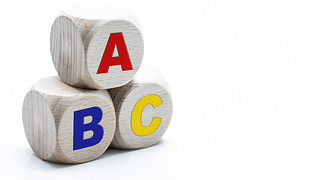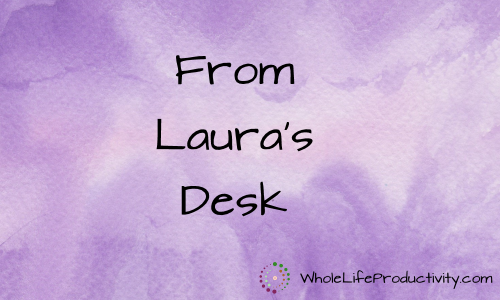
Clearing Away Brain Fog
Brain fog: that feeling that you can’t see to the next thought in your head and getting turned around as you try to accomplish things. It’s like being lost in a thick bank of fog – except that it is all inside you. And unlike weather fog, sometimes you don’t have the option to wait until it lifts.
I think that all of us have days when our brains are foggy and are just not quite up to peak performance. It can be due to lack of sleep, extra stress, poor food choices and any number of other things. Recently I experienced a serious lingering case of brain fog due to Covid, and I wanted to share seven things I did to get back on track from my brain fog.
We All Got Covid
All three of us got Covid within the same month. My daughter got it first, and she was able to isolate so that neither my husband nor I got it. But a couple of weeks later, he felt bad, tested positive, and four days later my test came back positive.
I didn’t have the same symptoms or lingering effects my husband and daughter had. My symptoms settled in my chest and head. While they only suffered from lasting fatigue, neither of them had the brain fog problem. I had it so bad I began to wonder at times if I was still asleep and having a bad dream.
My brain fog wasn’t a steady state, either. As soon as I tired, which was quickly, the brain fog would roll in harder and make it impossible to function until I rested.
How To Get Past Brain Fog
I found that getting past brain fog was possible with some heavy-duty applications of productivity techniques and some broadly-applicable tips from my percussion instructor. Here are the seven things I found most effective for getting past the brain fog.
Limit The Damage You Can Do
This is the productivity principle of taking advantage of your energy cycles, with an added twist. Limit the damage you can do.
When I went back to work (too soon) after Covid, I couldn’t even begin to think about the intricate tasks of design and high-level programming. I knew that if I attempted them I would make a big mess. So I purposefully picked things from my backlog that didn’t require a lot of thought and worked through them.
At home I made sure I wasn’t doing anything that required a lot of high-level function. I cleaned but stayed away from organizing tasks (and the outcome that I wouldn’t be able to find things in two months).
Vocalize
Vocalizing became important when the brain fog took over my spatial sense. I am left-hand-dominant ambidextrous, and learning percussion has been a challenge with its back-and-forth handedness that leans heavily to the right hand. I found that after Covid I was having the same difficulties I did at the beginning of my lessons – switching hands accidentally.
My percussion teacher had me start saying the hands out loud. (”Right left right right, Left right left left) and it cleared up the issue as long – as I kept talking.
I applied this to things I was attempting when the fatigue made the fog worse. (”I am loading the dishwasher. I am putting soap in the dishwasher. I am starting the dishwasher.”). It wasn’t enough just to think the things. Saying them out loud helped keep me on task.
Do Things Slowly and Deliberately
Our modern world is really fast paced. It encourages quickness in everything we do. Unfortunately, brain fog makes it impossible to move fast.
I found that every time I tried to push myself to do things faster I would make mistakes that would take a long time to undo. I realized that slowing things down, something I learned to do early in my productivity quest, was the answer.
As I performed each (single) task, I would say out loud what I was doing, and then really be deliberate about everything on the task. I would be very aware of what my hands were doing, what thoughts I was thinking, and how my body felt.
Slowing each task down meant that I could focus and cut back on my mistakes. This actually resulted in faster overall completion because I didn’t have to correct mistakes.
Focus on One Thing
Multi-tasking is the enemy of productivity. Our brains can’t truly multi-task – they switch rapidly between tasks. With brain fog, this switching becomes like wading through molasses, and I found I lost track of things midstream.
To get past this, I focused specifically on one task at a time. I reminded myself that as soon as my thoughts started to wander, I would probably not come back to the task. So I kept a pad of sticky notes with me and wrote down each task as I was doing it. All I had to do to get back on task was glance at the top note.
Keep a Distraction List
In order to keep my focus, I couldn’t rely on my brain to remember anything. Keeping a distraction list was a lifesaver. Unlike a typical distraction list that allows me to write the task that popped into my head, I used the distraction list as a tracker of where my brain went. As soon as I felt my attention slip, I wrote down what my thought was.
Not only did I capture all those distracting tasks, but I was also able to see a pattern in the distractions. I found that any visual distractions were derailing me, and the computer was the worst. I started working in full screen and hiding all icons in order to keep myself on track.
I kept my list mostly through email. When the thought was something I needed to do, I sent the email to my task manager. When it was just a plain old thought derailment, I emailed it to myself.
Stretch Your Brain
As part of my morning routine, I play some games to help keep my cognitive ability strong. This includes a puzzle of sudoku, as well as at least one round of an app called Mind Games (Google, iOS). This became difficult for me, as my concentration ability and my cognitive ability had degraded and my logical thinking was low.
I took a page out of my teaching experience where you meet the student where they are. I found different games with lower levels. Instead of doing a fiendish sudoku, I went down to easy. I found myself going back to Disney Emoji Blitz, a matching game. I re-installed solitaire on my phone so I could play pyramid. I also did some typing tutorials, which also helped with the spatial disconnect.
It was important for me to do this mental activity every day. I found that not only did it help me get back on track, but I could see the progress of the brain fog lifting as things became easier.
Make Sure You Are Getting Enough Rest and Water
Peak personal productivity relies on good physical condition. That means for peak productivity, you need to be rested, hydrated and fueled by good food. When you’re recovering from an illness, obviously you are not going to be in peak form, but you can optimize what you have by paying attention to these things.
Brain fog can worsen if you are tired or dehydrated. Making sure you rest when you are tired and drinking enough plain water (coffee doesn’t count, I’ve been told) will allow you to make the most of what energy you have.
Every time I felt myself slipping deep into brain fog I took a break, drank a glass of water and closed my eyes for five minutes (with a timer). It wasn’t a cure, but it helped.
Brain fog is not fun, and can impact everything about your life. Take your time, do one thing deliberately at a time, using your voice to support you, and you will have an easier time of it.




